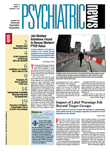The maker of donepezil (Aricept), a medication used in the treatment of Alzheimer's disease, challenged the National Institute for Health and Clinical Excellence (NICE), which advises the state-run health systems in England and Wales on drug coverage, in court over the institute's restrictions on the product.
The court upheld the national agency's power to restrict insurance coverage of medications based on assessments of their cost-effectiveness.
The Japanese drug manufacturer Eisai, which shares the worldwide marketing of donepezil with Pfizer, brought a legal challenge against NICE over its guidance document that limits the use of the drug. In the guidance document, dated November 2006, NICE stated that the use of donepezil in patients with mild Alzheimer's was not cost-effective and thus recommended that the National Health Service (NHS) pay for the treatment for patients with Alzheimer's disease of moderate severity only (that is, those with a Mini-Mental State Examination score of between 10 to 20 points).
NICE, which was established in 1999, is responsible for systematic review of the safety, efficacy, and cost-effectiveness of drugs and medical devices. It provides guidance to the NHS in determining coverage for drugs and medical products. It is the cost-effectiveness assessment and recommendations that have sparked the dispute.
Eisai filed the lawsuit with support from Pfizer and the Alzheimer's Society, a patient-advocacy group. It argues that NICE's analyses underestimate the drug's benefits, especially the benefits for care-givers of Alzheimer's patients, and that the health-economics models used by NICE are flawed. This is the first time it has faced judicial review of its decisions.
In a ruling handed down on August 10, the judge affirmed that NICE can restrict access to medicines and rejected the plaintiffs' claims. It also ruled, however, that NICE had breached its duties by not offering specific guidance in testing the disease severity of patients with learning disabilities and those for whom English is not their first language, which might unfairly deny appropriate treatment for these patients.
The court's decision has direct implications for NHS coverage of two other Alzheimer's drugs, rivastigmine and galantamine, which are also restricted to use in patient with moderate Alzheimer's disease as recommended by the NICE guidelines. All three drugs are in the class of reversible anticholinesterase inhibitors. They have been shown to improve the symptoms of Alzheimer's disease, but there is no evidence to indicate that they reverse the course of the underlying dementia process, according to the labeling information approved by the U.S. Food and Drug Administration.
The case attracted international attention, because it could set a precedent for others to challenge government attempts to restrict or deny payment for medical treatments based on the economic “worth” of a drug's efficacy. The state-run health care systems in the United Kingdom have sought to stem the rapid growth of medical expenditure through NICE-recommended restrictions, an approach that other countries' national health systems are watching closely.
The pharmaceutical industry is increasingly seeking to stop government payers' cost-cutting efforts aimed at reducing health care spending. The Association of the British Pharmaceutical Industry has announced plans to challenge the legality of another NHS policy related to switching patients from brand-name drugs to cheaper generic substitutions, as reported by Reuters on July 4. In addition, the July 13 Wall Street Journal reported on a campaign in the United States by makers of epilepsy drugs to pass legislation making it more difficult to switch epilepsy patients to generic drugs.
